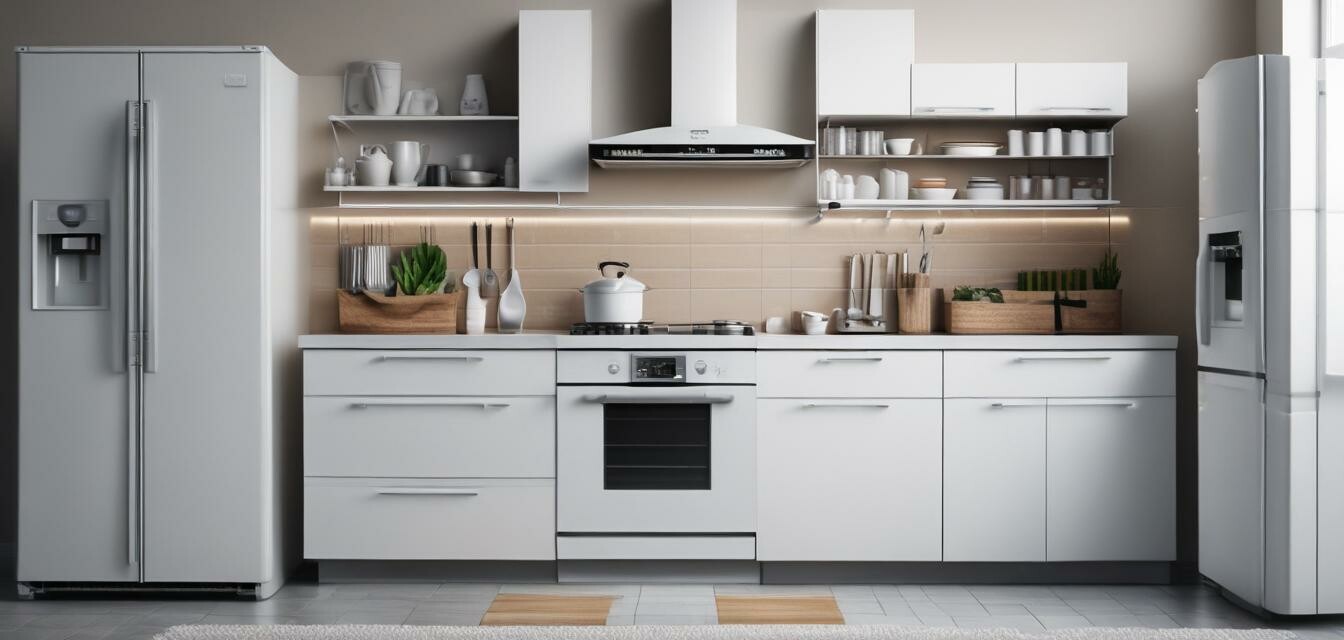
The Impact of Government Policies on Appliance Efficiency
Key Takeaways
- Government policies play a crucial role in setting energy efficiency standards for appliances.
- Recent changes in regulations aim to improve appliance performance and reduce carbon footprints.
- Consumers can benefit from understanding these policies when making purchasing decisions in 2025.
- Staying updated on industry trends can maximize energy savings at home.
As technology evolves, so do government policies aimed at enhancing energy efficiency. These regulations not only impact manufacturers but also influence consumer purchasing choices significantly. The current landscape will shape the market for household appliances in 2025, with a strong emphasis on sustainability and energy savings.
Understanding Appliance Efficiency Standards
Energy efficiency standards provide guidelines that appliances must meet to ensure optimal performance while minimizing energy consumption. Governmental bodies, such as the U.S. Department of Energy (DOE), spearhead the development of these standards. Recent trends show a robust movement towards increasing these efficiency benchmarks to tackle climate change and promote sustainable living.
| Appliance Type | Previous Efficiency Standard | New Efficiency Standard (Effective 2025) |
|---|---|---|
| Refrigerators | 750 kWh/year | 600 kWh/year |
| Washing Machines | 400 kWh/year | 300 kWh/year |
| Dishwashers | 300 kWh/year | 250 kWh/year |
The Role of Government Policies
Government policies are designed to stimulate advancements in energy-efficient technologies. For instance:
- Incentives for manufacturers to develop cutting-edge appliances that consume less energy.
- Mandatory labeling systems to inform consumers about their appliances' energy consumption.
- Funding and support for research that leads to innovations in appliance efficiency.
Legislation, such as the Energy Policy Act, plays a pivotal role in leading these efforts. As new regulations are introduced, they set the stage for a shift in the manufacturing and retail landscape.
Upcoming Changes and Trends for 2025
In preparing for 2025, consumers should be aware of various changes likely to take place:
- Increase in appliance prices due to higher manufacturing costs associated with meeting new standards.
- Availability of smart appliances that provide real-time data on energy consumption.
- An emphasis on environmentally friendly materials in the production of appliances.
As these trends evolve, it is essential for consumers to stay informed, allowing them to make educated purchasing decisions. For more insights about home and kitchen appliances, visit our Buying Guides section.
The Consumer Perspective
With increased awareness about energy efficiency, consumers are now more inclined to consider several factors:
- Initial purchase price vs. long-term energy savings.
- Impact of energy-efficient appliances on carbon footprint.
- Incentives and rebates offered by local or federal governments.
Understanding these aspects can lead to smarter purchasing decisions and ultimately contribute to a more sustainable lifestyle.
Pros
- Lower energy bills over time with energy-efficient appliances.
- Reduced environmental impact contributing to a greener planet.
- Potential government rebates and tax incentives for energy-efficient purchases.
Cons
- Higher upfront costs for purchasing energy-efficient appliances.
- Limited availability of specific models as manufacturers adjust to new regulations.
Conclusion
The upcoming changes in government policies regarding appliance efficiency are set to influence consumer behavior significantly. By understanding these trends, consumers can proactively adjust their purchasing strategies to align with energy-efficient practices, benefiting both their wallets and the environment.
Stay updated with the latest news on energy-efficient appliances by checking out our News and Trends page. These insights will help you navigate the evolving landscape of home appliances effectively.
Further Reading
If you're interested in deepening your knowledge about different appliances or want to explore various buying guides, make sure to visit our appliance category sections:
